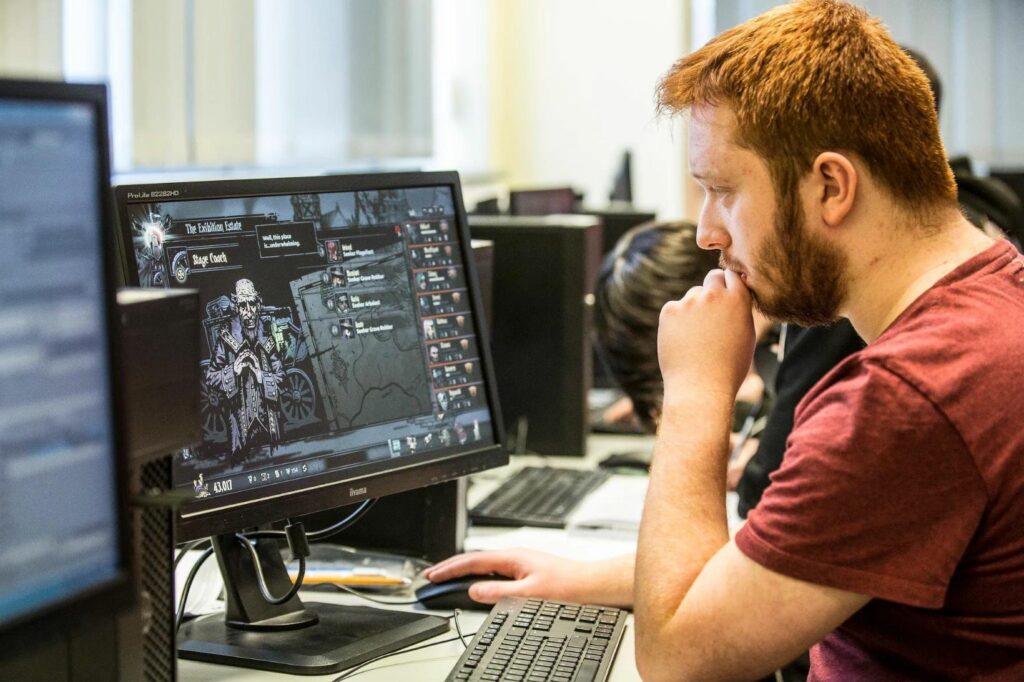Breaking into the dynamic world of game development might seem daunting, but it’s more accessible than you’d think. Whether you’re a budding programmer, a digital artist, or simply a gaming enthusiast with a creative vision, there’s a path for you.
This article will guide you through the essential steps to kickstart your journey into game development. From acquiring the necessary skills to understanding the industry landscape, we’ll provide you with a roadmap to navigate this exciting career path. Prepare to turn your passion for gaming into a fulfilling profession.
How To Get Into Game Development
Diving deep into the world of game development uncovers a fascinating realm where creativity intertwines with technology. Here lies an insight into the concept of game development and the skills required to embark on this venture.
The Concept of Game Development

Game development refers to the process of designing, creating, and releasing a video game. It’s a field exclusively dedicated to the ideation and realization of interactive entertainment experiences. Naturally, it incorporates numerous aspects such as conceptualisation, designing, coding, character and plot development, testing, and finally, launching. Various types of professionals, such as game designers, programmers, and graphic artists, contribute to the game development process, each playing a critical role.
Required Skills for Game Developers
For those seeking a career in game development, several skills are essential for success. First off, proficiency in programming languages such as C++ and Java ranks high. It provides the foundation necessary for writing game codes. Creativity holds the key to game design, influencing everything from character design to storylines. Problem-solving skills, too, stand crucial, as developers often face unique challenges to bring their virtual worlds to life. Proficiency in using game development tools and software, such as Unity or Unreal Engine, enhances a developer’s toolkit. Lastly, teamwork and communication skills are vital, as game development often involves collaborating with diverse teams. With these skills, aspirants can equip themselves for a successful career in game development.
Choosing the Right Game Development Software
Selecting appropriate game development software plays a key role in producing a successful game. It hinges on factors such as your programming abilities, style of game, and design aspirations.
Popular Game Development Software

Several game development software solutions dominate the industry. Unity, Unreal Engine and Godot lead in popularity. For instance, Unity offers a broad range of features, supporting both 2D and 3D game development. It’s highly versatile, accommodating various platforms such as Windows, iOS, Android, and gaming consoles. Unreal Engine, renowned for its top-tier graphics and real-time technology, caters mostly to AAA game production. Respectively, Godot, an open-source engine, provides a user-friendly interface suitable for indie developers and beginners.
Evaluating Game Development Software
When considering game development software, align the tools with the game’s design objectives. Examine the software’s capability to support the desired gaming platform, be it PC, console, or mobile. Cost, too, factors into the decision. Unity and Godot offer free versions, while Unreal Engine uses a profit-sharing model. Additionally, consider the learning curve of the software, and balance this with the timeline of the project. For instance, Unreal Engine, despite its advanced features, requires substantial mastery, which might prolong the development process. Lastly, assess the community support and resources available for the software, as these can provide invaluable assistance during the development process.
The Latest Happenings

Breaking into game development isn’t a walk in the park. It’s a journey that demands not just a solid understanding of programming and game design but also a commitment to continuous learning. From formal education at renowned universities to self-paced online courses, the path varies for everyone. A well-curated portfolio can be your ticket into the industry, showcasing your ability to blend theory with practice. Landing that first job is a significant milestone, but it’s just the start. As the world of game development evolves, so should you. Embrace the latest technologies, engage with the community, and never stop learning. Remember, it’s your passion, creativity, and adaptability that’ll set you apart in this thrilling, fast-paced industry. So gear up, stay focused, and let the game begin!



